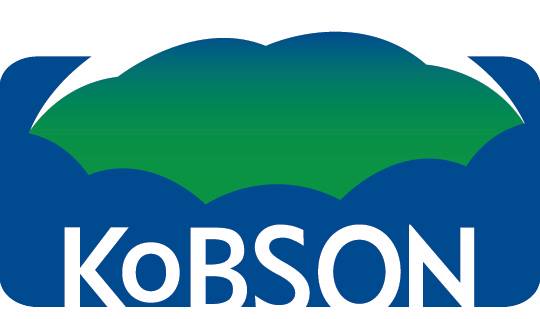DOI: 10.5937/jaes17-22032
This is an open access article distributed under the CC BY-NC-ND 4.0 terms and conditions. 
Volume 17 article 609 pages: 295 - 303
Autonomous fault-tolerant systems, operated at hard environment, are considered in this paper. It is shown that common method of units failure compensation, based on an introduction to the system a structural redundancy, leads to the increase of weight/size factor and energy consumption, but sometime does not prolongs its lifetime. The new approach to fault/recovery process modeling, based on use of fundamental apparatus of parallel semi-Markov process, in which ordinary processes simulate the life-cycle of individual units, and the complex process, assembled from ordinary processes, simulates reliability system as a whole, is proposed. Dependences for calculation of time intervals and probabilities of wandering through ordinary semi-Markov processes, with use of the recursive method are obtained. It is shown, that when there is rather complex model of unit life-cycle, semi-Markov process would be replaced with more coarse Markov process. Notions of complex semi-Markov process, such as functional states and semi-Markov matrices Cartesian product are introduced. Theoretical results obtained are confirmed by the practical calculation of the reliability indicators of the system with passive redundancy.
1. S.G. Tzafestas, Introduction to Mobile Robot Control (Elsevier, 2014, pp. 750).
2. I.D. Landau, G. Zito, Digital Control Systems, Design, Identification and Implementation (Springer, 2006, pp. 484).
3. J. Aström, B. Wittenmark, Computer Controlled Systems: Theory and Design (Tsinghua University Press. Prentice Hall, 2002, pp. 557).
4. M. Rousand, Reliability of Safety-Critical Systems: Theory and Applications (John Wiley & Sons, 2014, pp. 466).
5. M. Sánchez-Silva, G.-A. Klutke, Reliability and Life-Cycle Analysis of Deteriorating Systems (Springer International Publishing. Switzerland, 2016, pp. 355).
6. P. O'Conner, A. Kleyner, Practical Reliability Engineering (Willey and Sons, 2012, pp. 456).
7. I. Koren, M. Krishna, Fault Tolerant Systems (Morgan Kaufmann Publishers, San Francisco, CA, 2007, pp. 40).
8. E. Dubrova, Fault-Tolerant Design. Springer-Verlag New York (Springer Science+Business Media New York, 2013, pp. 185).
9. Y. Zhang, J. Jiang, Bibliographical review on reconfigurable fault-tolerant control systems, Annu. Rev. Control., Vol. 32 (Issue 2): 229–252, 2008.
10. S.C. Malik, R. Rathee, Reliability modelling of a parallel system with maximum operation and repair times, International Journal of Operational Research, Vol. 25(Issue 1): 131 – 142, 2016.
11. M.D.J. Smith, K.G. Simpson, Safety Critical Systems Handbook (Elsevier Ltd., NY, 2011, pp. 270).
12. T.R. Bielecki, J. Jakubowski, M. Niewęgłowski, Conditional Markov chains: Properties, construction and structured dependence, Stochastic Processes and their Applications, Vol. 127(Issue 4): 1125–1170, 2017.
13. W.K. Ching, X. Huang, M.K. Ng, T.K. Siu, Markov Chains: Models, Algorithms and Applications, International Series in Operations Research & Management Science. Springer Science + Business Media NY, Vol. 189: 241, 2013.
14. R. A. Howard, Dynamic Probabilistic Systems. Vol. 1: Markov Models. Vol. II: Semi-Markov and Decision Processes (Courier Corporation, 2012).
15. J. Janssen, R. Manca, Applied Semi-Markov processes (Springer US, 2006, pp. 310).
16. E.V. Larkin, A.N. Ivutin, V.V. Kotov, A.N. Privalov, Simulation of Relay-races, Bulletin of the South Ural State University. Mathematical Modelling, Programming & Computer Software, Vol. 9(Issue 4): 117 – 128, 2016.
17. M. Sánchez-Silva, G.-A. Klutke, Reliability and Life-Cycle Analysis of Deteriorating Systems (Springer International Publishing. Switzerland, 2016, pp. 355).
18. R. Du, S. Ai, O. Hu, Competition and cooperation between brands in a segment: an analysis based on a semi-Markov model, International Journal of Services Sciences, Vol. 2(Issue 1): 70 – 82, 2009.
19. C. Eisentraut, H. Hermanns, L. Zhang, Concurrency and Composition in a Stochastic World., Proceedings of 21th International conference “CONCUR 2010-Concurrency Theory” (2010, 21–39).
20. Q. Jiang, H.-S. Xi, B.-Q. Yin, Event-driven semi-Markov switching state-space control processes, IET Control Theory & Applications, Vol. 6(Issue 12): 1861 – 1869, 2012.
21. E. Larkin, A. Ivutin, D. Esikov, Recursive Approach for Evaluation of Time Intervals between Transactions in Polling Procedure, 2016 8th International Conference on Computer and Automation Engineering (ICCAE 2016) (Melbourne, Australia – MATEC Web of Conferences, 2016).
22. P. Petersen, Linear algebra (Springer-Verlag. New York, 2012, pp. 427)
23. H. Kobayashi, B.L. Marl, W. Turin, Probability, Random Processes and Statistical Analysis (Cambridge University Press, 2012, pp. 812)
24. B. Grigelionis, On the convergence of sums of random step processes to a Poisson process, Theory of Probability & Its Applications, Vol. 8(Issue 2): 177-182, 1963.
25. H. Lu, G. Pang, M. Mandjes, A functional central limit theorem for Markov additive arrival processes and its applications to queuing systems, Queuing Systems, Vol. 84(Issue 3): 381–406, 2016.
26. M. Sony, V. Mariappan, V. Kamat, Stochastic modelling of failure interaction: Markov model versus discrete event simulation, International Journal of Advanced Operations Management, Vol. 3(Issue 1): 1 – 18, 2011.
27. Z. Gao, S. X. Ding, C. Cecati, Real-time fault diagnosis and fault-tolerant control. IEEE Transactions on Industrial Electronics, Vol. 62 (Issue 6), 2015, pp. 3752-3756.
28. Y. H. Jing, G. H. Yang, Fuzzy adaptive fault-tolerant control for uncertain nonlinear systems with unknown dead-zone and unmodeled dynamics. IEEE Transactions on Fuzzy Systems. 2019.
29. S. Simani, S. Alvisi, M. Venturini, Fault tolerant control of a simulated hydroelectric system. Control Engineering Practice, Vol. 51, 2016, pp. 13-25.
30. J. Qin, Q. Ma, H. Gao, W. Zheng, Fault-tolerant cooperative tracking control via integral sliding mode control technique. IEEE/ASME Transactions on Mechatronics, Vol. 23 (issue 1), 2017, pp. 342-351.
31. A. N. Ivutin, E. V. Larkin. Simulation of Concurrent Games. Bulletin of the South Ural State University. Series: Mathematical Modeling, Programming and Computer Software. Chelyabinsk, Vol. 8 (Issue 2), 2015, pp. 43-54.
32. T. Yang, L. Zhang, X. Yin, Time-varying gain-scheduling-error mean square stabilisation of semi-Markov jump linear systems. IET Control Theory & Applications, Vol. 10 (Issue 11), 2016, pp. 1215-1223.







